SURREY – A three-year-old biofuel facility in the heart of the Lower Mainland has ramped up compost production, creating a new soil amendment source for BC growers.
Owned by the City of Surrey and operated under a 25-year contract with Convertus, the Surrey biofuel facility is the first closed-loop organic waste facility in North America. Built at a cost of $68 million through a public-private partnership with Orgaworld Canada, it is the largest enclosed composting facility in Canada with the ability to process 115,000 tonnes of residential and commercial organic waste a year into renewable natural gas. Approximately 80% of the raw material is green waste like residential yard trimmings and 20% food waste collected by municipalities across Metro Vancouver.
The gas fuels Surrey’s waste collection trucks. A byproduct of gas production is compost. While repurposing organic waste is common in Europe, the scale of the Surrey facility is unique in North America.
“The facility is currently putting out 40,000 tonnes of dry, lightweight organic compost per year,” says Greg Ewasiuk, business development manager at Veratec Engineered Products Inc., the BC soils and mulch producer with exclusive rights to market and sell the compost.
Veratec is seeking organic certification for the compost. Ewasiuk says production takes about three weeks resulting in a dry material with a fine texture, consistent composition and little odour. The closed-loop system is approximately four times faster than composting outdoors.
“Typically, outdoor windrow compost is made from all kinds of incoming compost feedstock such as food waste, green waste, biosolids (sewage) and animal manure,” explains Ewasiuk. “But it’s a much slower and lower-volume process that’s harder to consistently control.”
Surrey’s compost doesn’t contain biosolids, manure or added wood or sawdust fillers. Veratec says it is on par with other soil amendments, adding nutrients and building soil health. The recommended application rate is 30-50 tonnes per hectare in the Okanagan, with application over several years recommended for best results.
Commercial vineyards, orchards, market gardens, cannabis growers and nurseries throughout the Lower Mainland, on Vancouver Island, as well as in the Okanagan, are the target market for the product, marketed under the Thrive Organic Compost banner.
Ewasiuk says building up soil structure using compost should significantly reduce the future use and dependency on conventional fertilizers and manures, which he says are proven to be harmful to the environment if used long-term.
“We’ve got trials running at over 20 locations throughout BC. It’s being used on berries as well in the Lower Mainland,” he says.
For growers, the product is viewed as a natural soil amendment and an environmentally sustainable way to improve plant health, fruit quality and yield.
In West Kelowna, Quails’ Gate Winery is trialing the compost on 10-12 acres of mature Pinot Noir and Chardonnay vines. Quails’ Gate wants to rejuvenate the planting and has applied Veratec’s compost to the ground around the vines at a rate of about six tonnes an acre.
Ed Tonner, who joined Quails’ Gate as senior viticulturalist this spring, says the compost was brought to his attention by the winery’s former viticulturist, Chad Douglas.
“We’re looking to uplift the soils and give the vines a little extra push since we’ve now got viable buds and cane selection made possible by our vineyard team,” he says.
The compost will also count towards the winery’s certification under the Sustainable Winegrowing BC program, a project of the BC Wine Grape Council. In the vineyard, much of the focus is on water and erosion management which will be especially important with a new residential development going in directly above some of Quails’ Gate’s vineyards.
Abbotsford kiwi grower Gorgi Petkov is also using the compost. He’s used mushroom, duck and chicken manure to build the soils in his eight-acre orchard in the past, along with traditional fertilizer. But last November he took delivery of Veratec’s compost and applied it at 30 tonnes per hectare. It lay in the orchard over the winter and was tilled into the soil this spring.
While he won’t see any effect on the soil till this fall, he is confident the compost will be effective.
“In general, this compost was the cleanest, nicest structure compared to others I’ve used in the past and it was almost odourless,” says Petkov. “I will still use some nitrogen supplements but my hope is to use less and less fertilizer … and the benefit of this product is that it is so consistent and always available.”
Although trials of Veratec’s compost are just beginning, Ewasiuk says the use and benefits of compost are well documented in Europe, Germany, the Netherlands and France, particularly among organic growers in vineyards, orchards and berries.
“They’ve been doing that for, some of them, over 10 years now. They’ve had some really good results there,” he says.
He believes year-round product availability will be a game-changer for growers across North America as more cities look for ways to use organic waste
“Fertilizer dependency is expensive so if farmers can move to something organic and sustainable, and instead fix their soils long-term, the foundation of their business, I think it’s a no-brainer they will,” he says, noting the product is great for boosting nutrient levels in sandy and clay soils.
Thrive Compost contains less salts than most traditional fertilizers. It offers a slower, more even release of nitrogen and phosphorus, reducing the risk of burning young plants. It also helps to increase soil organic matter, structure, moisture-holding capacity and stimulates important micro-nutrient development in the soil.
“Nitrogen fertilizing in some form is always going to be necessary seasonally for certain crops but if you correct your soils with compost and micronutrients, far less fertilizer is required, and far less water use as well, which is also costly in some areas,” he says.
Ewasiuk expects additional closed-loop waste recycling facilities to open in BC in the next five to 10 years, including the Okanagan. Reusing organic waste is good for the environment and enables farmers to demonstrate a sustainable practices. But adoption of the new product will take time and education. Veratec has an in-house agrologist on staff to help.
“I deal with many of the farmers. They’re becoming aware of this type of product and they’ve been wanting to make this switch for a long time, but it hasn’t been available in large, consistent quantities nor viable,” says Ewasiuk. “But within the next three to five years, definitely, we’re going to see some really large changes in the industry as it moves towards increased sustainability.”

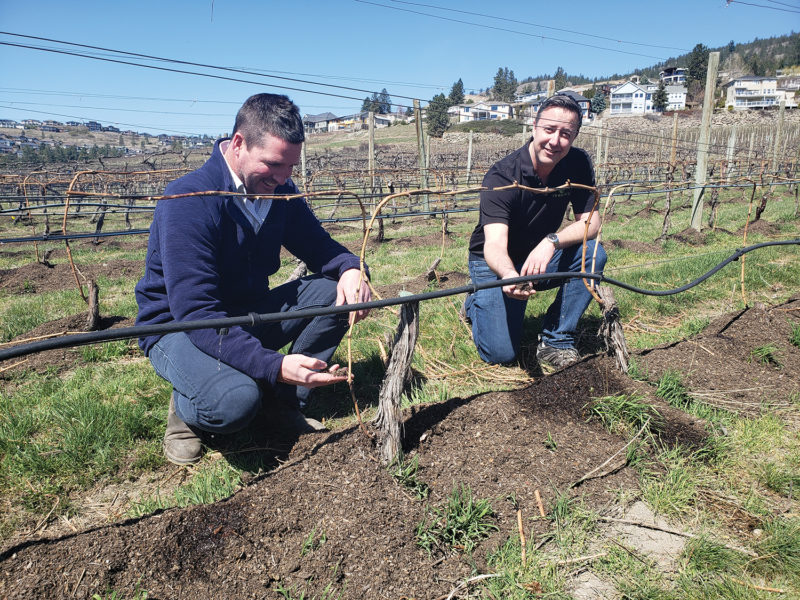
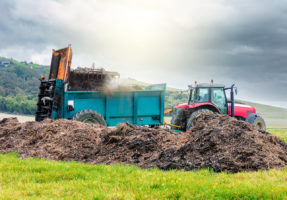
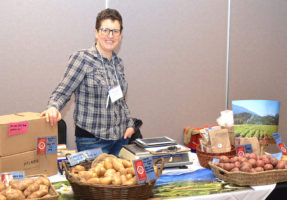

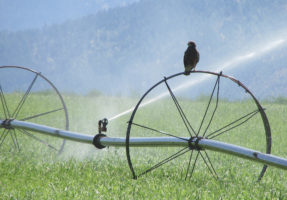
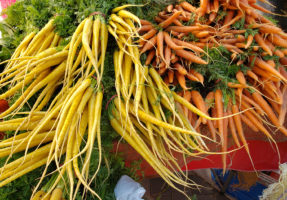

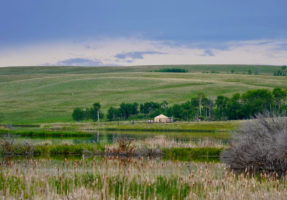
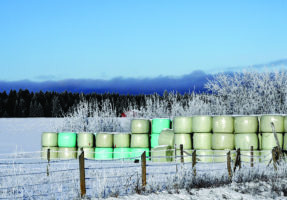
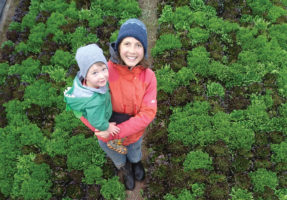
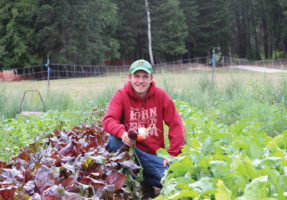
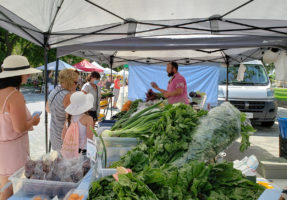
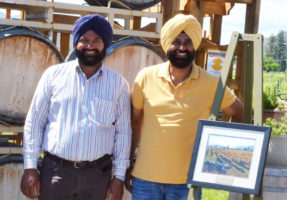
 Farmer-chef connections still paying off
Farmer-chef connections still paying off